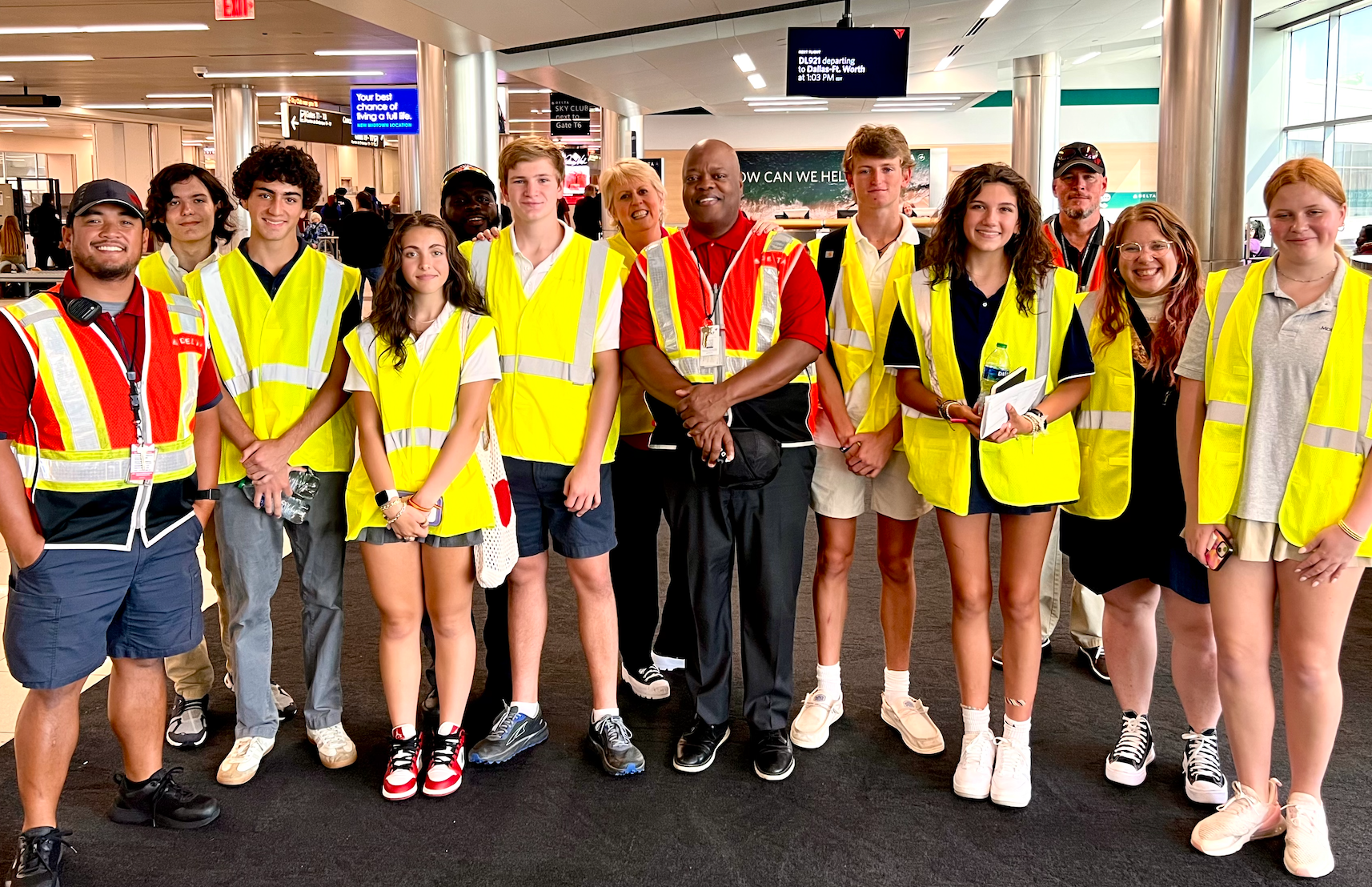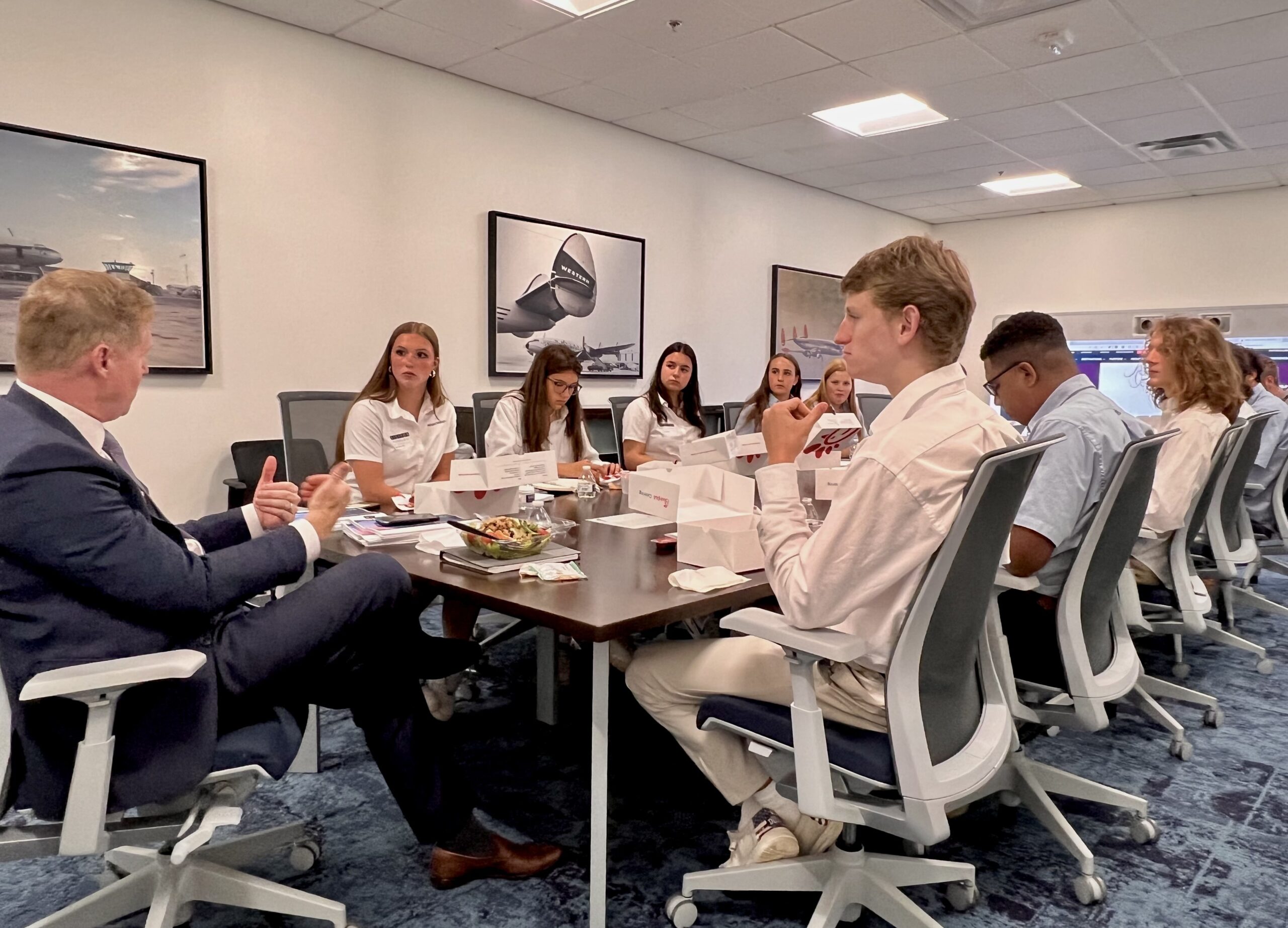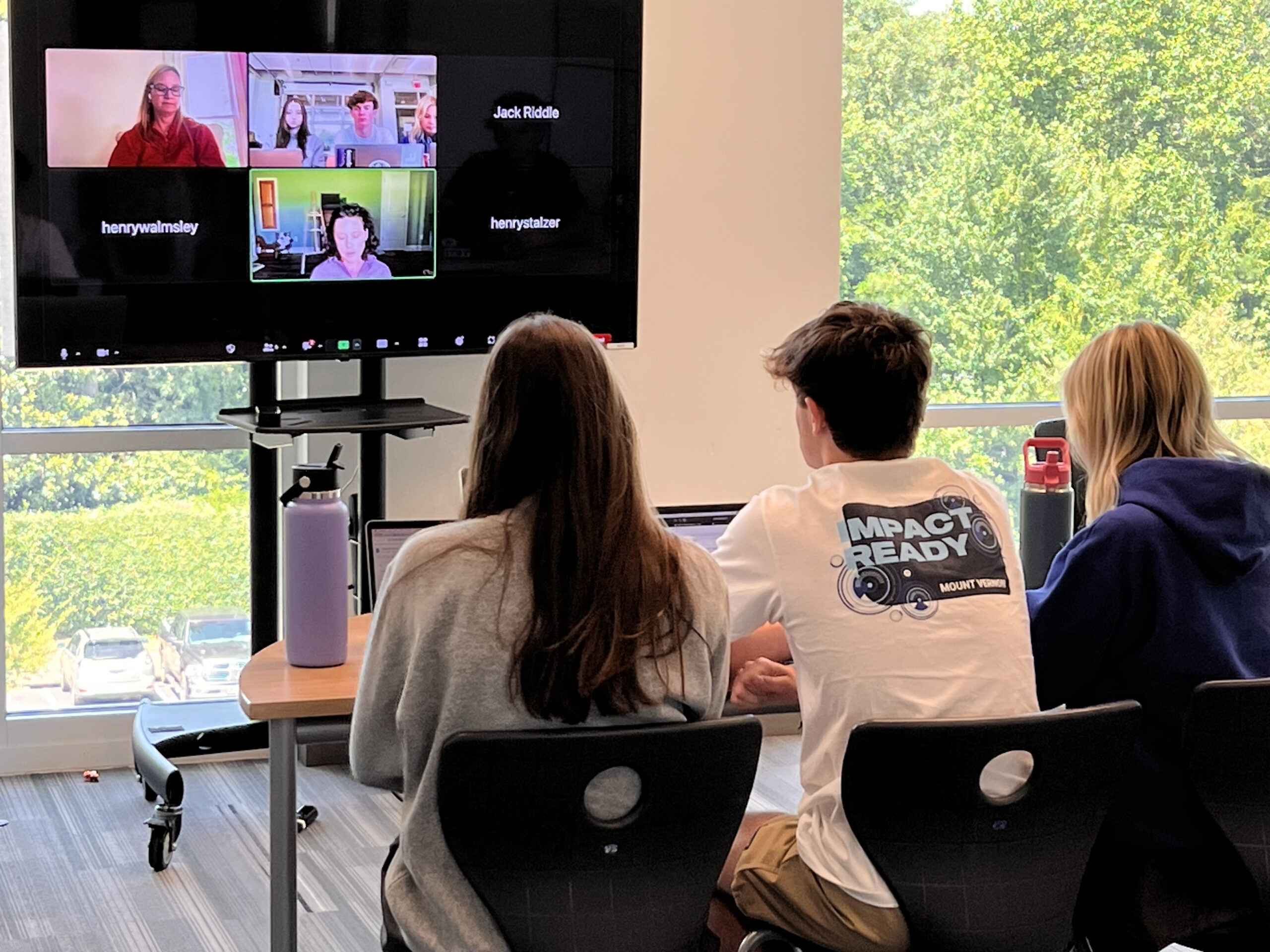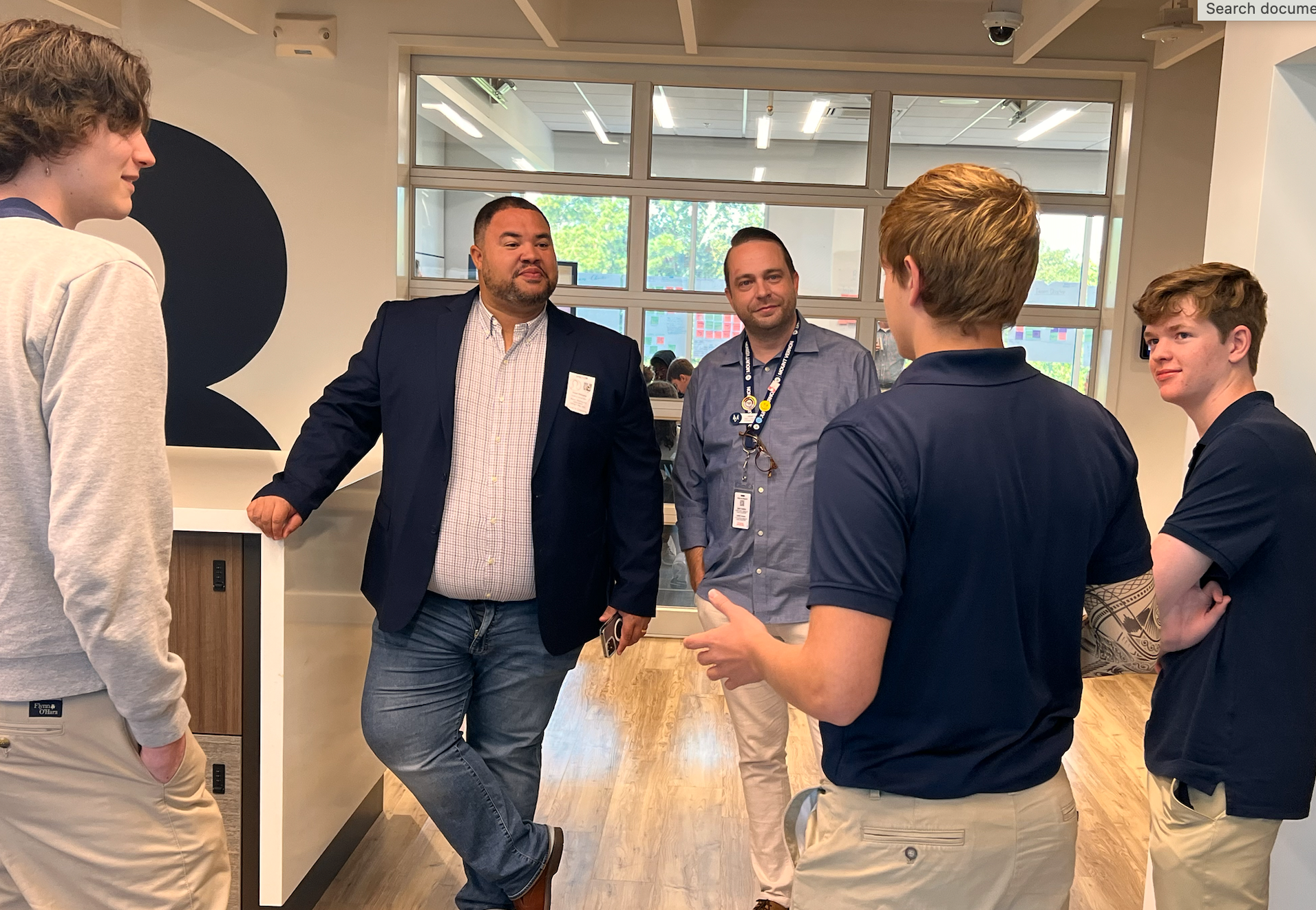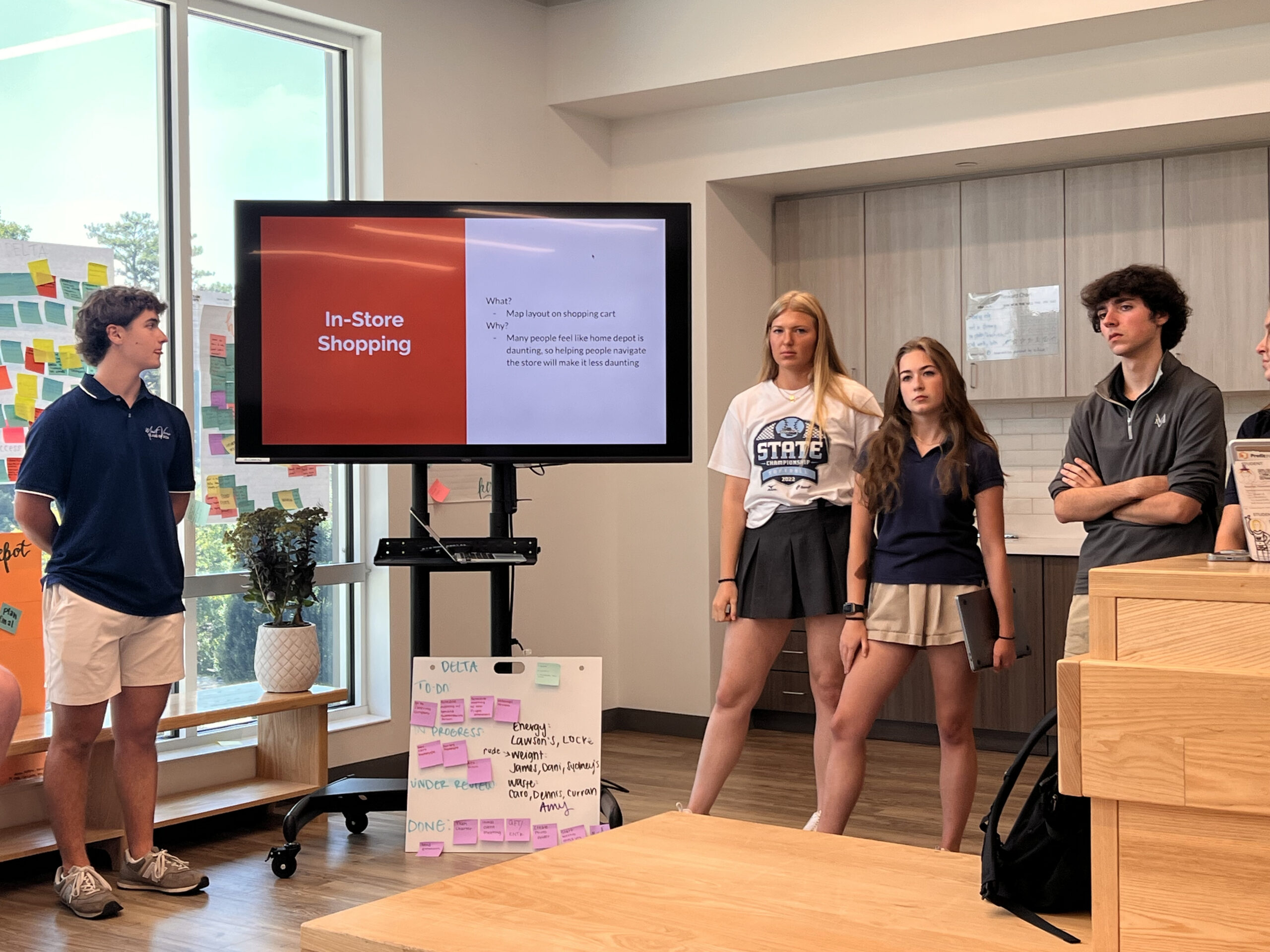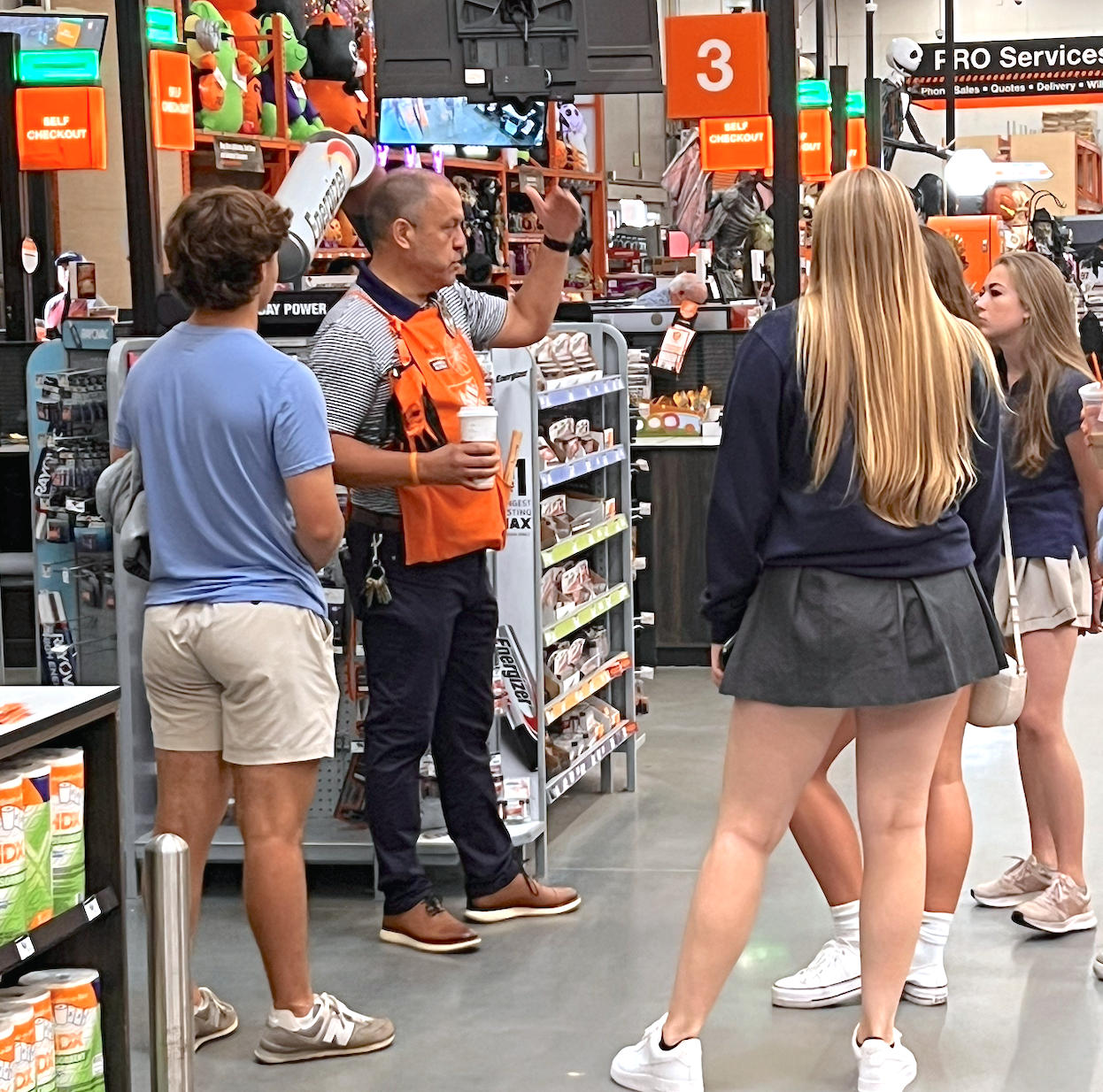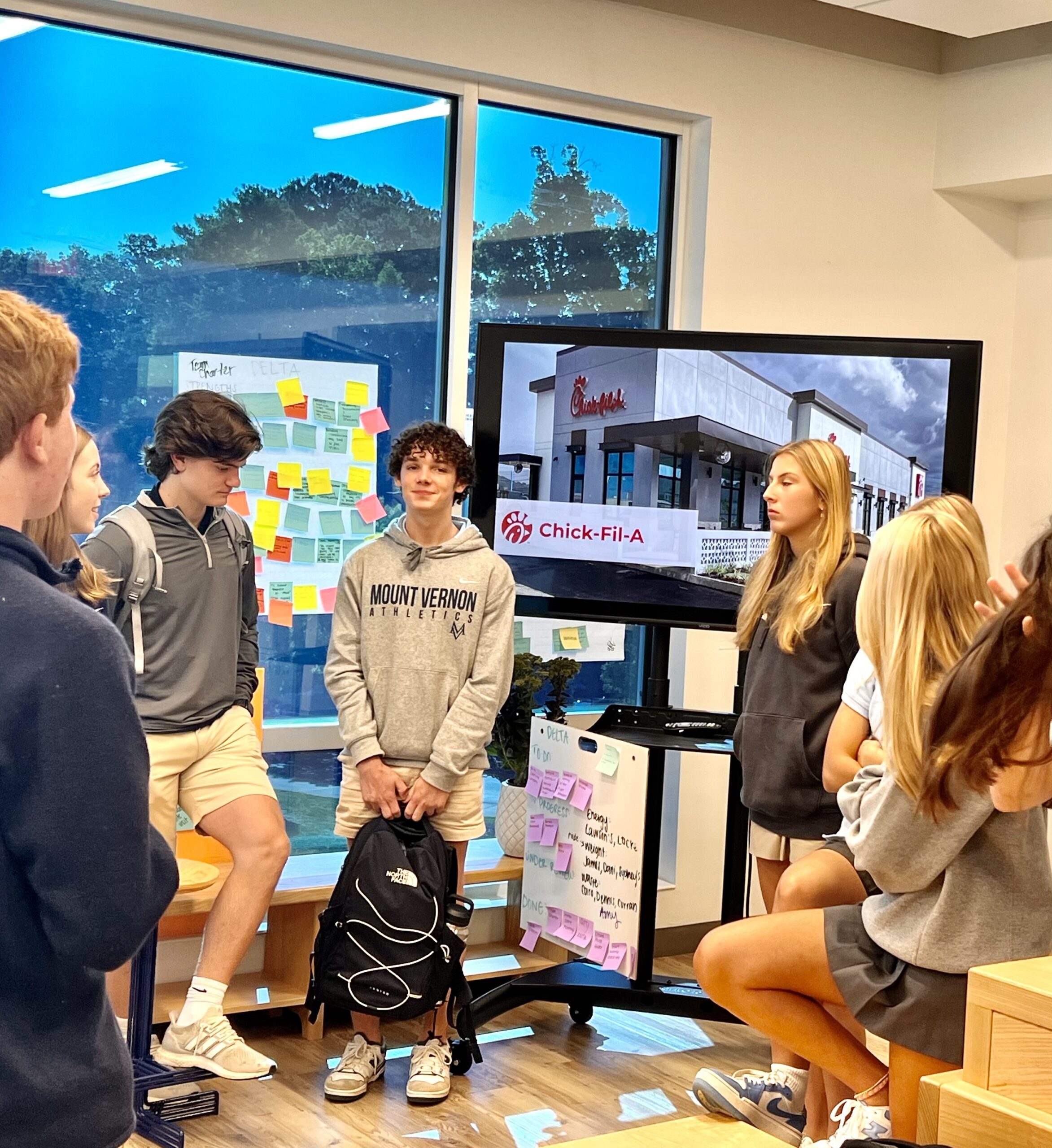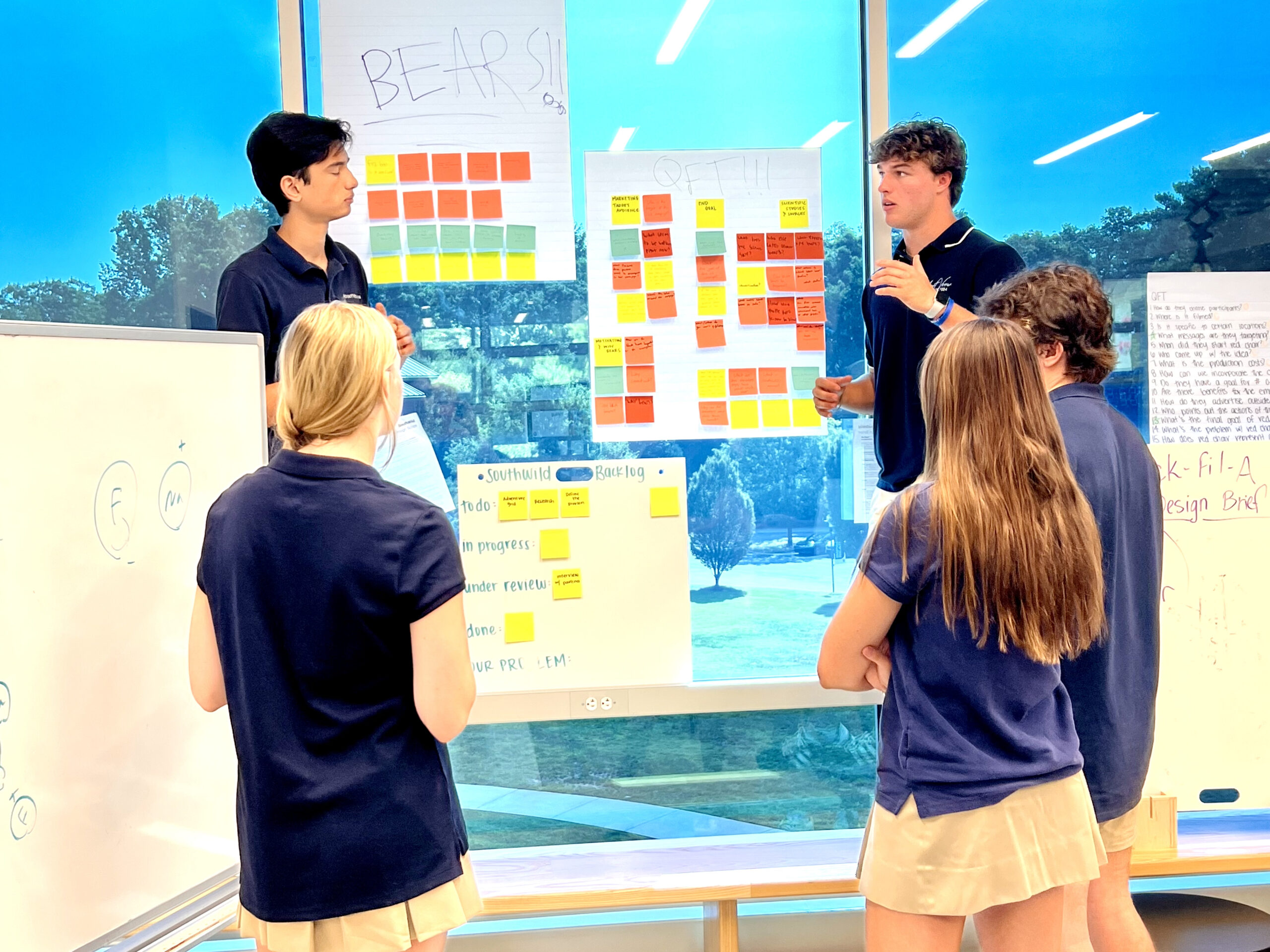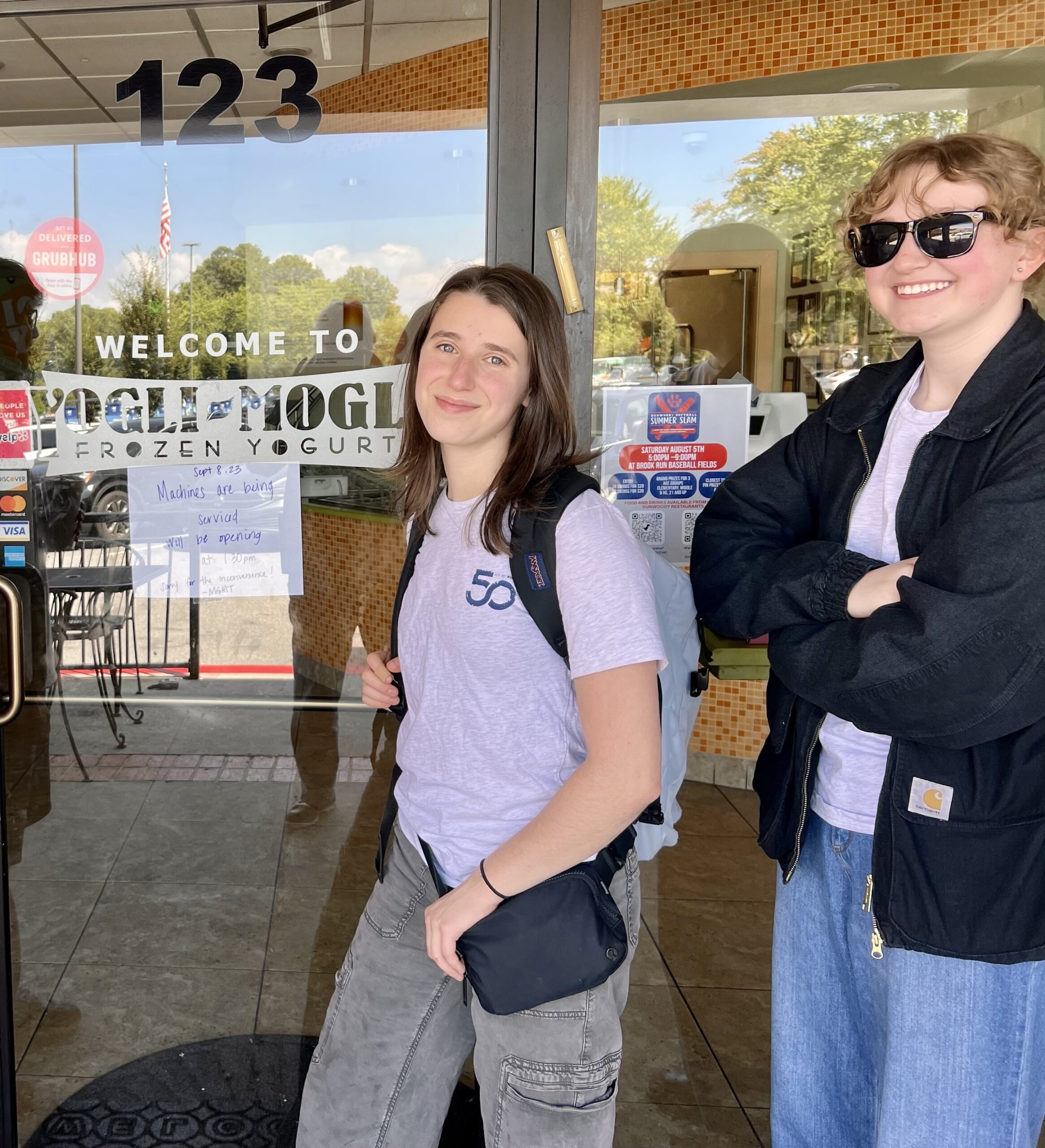Mount Vernon’s Innovation Diploma (iD) program, now in its tenth year, continues to evolve, refining its content, workflows, and processes. As we approach the tenth anniversary milestone this January, the current mod boasts an impressive slate of 7 corporate partnerships. We had the privilege of catching up with Krista Fancher, the Director of iD, to gain insights into this year’s program structure, the addition of new faculty members, and the impressive Design Briefs that Juniors and Seniors are currently immersed in.
Structure of iD Design Briefs for the Upcoming Year
Mrs. Fancher explained a thematic approach has been introduced for each mod this year:
- Module 1 is focused on large, well-known companies.
- Module 2 explores the “Future of…” deliberately left open-ended to spark creativity. (This year’s theme will be announced soon.) During Mod 2 guest experts join us in December to experience and evaluate the students’ work.
- Module 3 centers around nonprofit organizations.
- Module 4 encompasses local businesses and startups and any remaining projects that didn’t fit into previous modules. (For example, UPS had to postpone their project to the spring, originally slated for Module 1.)
This thematic structure provides students with a diverse range of experiences, allowing them to explore the nuances of working with different types of organizations, from corporate giants to grassroots startups.
Design Briefs in Mod One
Delta Airlines has presented a thought-provoking challenge. They aspire to lead in sustainable air travel, recognizing that the entire world lags behind their 2030 and 2050 sustainability goals. To tackle this monumental task, Delta seeks fresh perspectives. When our students sat down in Delta’s boardroom and envisioned the future, it was an eye-opening experience. They realized that even small improvements in airplane weight reduction could have a massive impact on fuel efficiency and operating costs. This project is a canvas for audacious ideas, and Delta eagerly anticipates the innovative solutions our students will propose.
Chick-fil-A approached us with an internal communication challenge. The designers of their in-house communication platform wished to increase engagement with CFA executives. Through interviews and research, our students discovered a unique solution that they are excited to share with company officials at the end of the Mod.
Both the Delta Airlines and Chick-fil-A projects have intriguing implications, tapping into the unique perspectives of Gen Z, a generation that approaches life, communication, and work differently. This generational shift is a recurring theme in our work, influencing how we tackle challenges and envision solutions.
Home Depot, a third brief during the current Mod, presents an intriguing inquiry into the shopping habits and preferences of Gen Z and Millennial shoppers. Recognizing the changing demographics of their core customer base, Home Depot seeks ways to engage younger shoppers as they establish households and families. Understanding this demographic is crucial for Home Depot’s future strategies. After learning about the company’s structure and culture, iD students held interviews, surveys, and focus groups to gain crucial insights.
Intercontinental Hotel Group (IHG) is another valued client, seeking assistance in promoting career opportunities and internships within their organization. Our students are tasked with not only raising awareness about IHG’s diverse career paths but also developing pathways for interested individuals to acquire relevant certifications. This project aims to bridge the gap between potential candidates and internship programs, enabling IHG to tap into a more skilled and motivated talent pool.
Additionally, our students are working on projects for Yogli Mogli, focusing on enhancing customer experiences, and Immersive Global Solutions, LLC, an AR and VR training platform company. The latter project involves creating displays to showcase IGS capabilities and use cases, particularly a VR training application for air marshallers.
Another group is collaborating with Southwild, an ecotourism initiative dedicated to conservation through tourism. The goal is to translate extensive scientific research into a compelling marketing campaign to promote black bear conservation, emphasizing that these creatures are more afraid of humans than we are of them. Students are tasked with analyzing complex scientific research and translating the findings into a compelling message to protect the bears.
Group Assignments for Design Briefs
Mrs. Fancher explained the approach to assigning groups for design briefs is rooted in consideration of students’ skills and interests. “While we aim to match students with their preferred projects, practical constraints often come into play. We strive to strike a balance, ensuring each student is engaged and challenged.”
Notably, Delta Airlines presented an exceptional opportunity, requiring a larger team of 14 students to address their multifaceted challenge effectively. However, for other briefs, students typically have the opportunity to choose between two options, allowing them some degree of agency in their project selection.
Client Engagement and Learning
One of the unique aspects of the iD program is the immersive client engagement our students experience. Clients like Delta Airlines actively participate, encouraging students to ask questions, visit their facilities, and gain a deep understanding of the industry and the challenges they face. This real-world interaction is invaluable, providing students with an authentic learning experience that extends beyond the classroom.
The process begins in the early weeks of the school year, with students diving into their respective briefs. They start with questions that lead into their discovery work. They collaboratively conduct interviews, observations, research, surveys, and focus groups to formulate innovative solutions. The projects culminate in final presentations, where students share their insights and recommendations with the clients.
Client Presentations Quickly Approaching
At present, we are in the sixth week of the school year, with Design Brief final presentations scheduled for the eighth week. Following the presentations, students will write a case study and then package and send all their work to the client.
Introduction to iD for Grades 9 and 10
Before students tackle high-stakes design briefs at the scale of the ones we outlined above, the iD program starts with a deliberate skills progression for Grades 9 and 10. The focus during these foundational years includes imparting essential skills such as collaboration, project management, and communication. These skills are honed through interdisciplinary project work with a gradual release of adult guidance, providing students with a strong foundation to tackle more complex challenges in later years.
In Grade 9, the emphasis is on cultural integration, establishing expectations, and familiarizing students with the tools and resources available. Project management skills are introduced, setting the stage for the robust work that follows.
Grade 10 students are given greater autonomy, engaging in a bit more independent work and ramping up leadership and design capabilities. This year marks their transition to mastering the Design Brief framework and field guide tools, equipping them for success in their upper-class years.
Student-Led Work
The iD program places a strong emphasis on student leadership. In every aspect of the program, students take the lead, making decisions, setting goals, and organizing their work. Even without teacher intervention, they exhibit a remarkable level of self-motivation and organization.
The daily routine of our students is characterized by stand-up meetings, where they share progress, set objectives, and identify any obstacles. These meetings serve as a testament to their autonomy and drive and launch them into the day’s work.
The iD Faculty Team
At the heart of iD is a dedicated team of educators and staff who contribute to the success of the program. In addition to Ms. Fancher’s leadership and oversight the team includes:
- Emily Wilcox, our Associate Director of Innovation Diploma, oversees the onboarding iD class, “Design for Good,” and plays a crucial role in mentoring and guiding all students and teachers.
- Kevin Huitt and Meredith Ammons, new additions to our iD Humanities team, co-teach alongside Ms. Wilcox for part of their day, gaining valuable insights into the program’s culture.
- Alan Harris, a dynamic science teacher and Mount Vernon alumnus, brings a wealth of experience to our program, ensuring the tradition of innovative science education continues.
- Jim Tiffin supports all iD briefs and underclassmen work with his maker, design and engineering teaching.
Opportunity to Stay Connected & Get Involved
The iD program at Mount Vernon is a journey of growth, learning, and real-world application. From its foundational years to the advanced projects of juniors and seniors, it equips students with essential skills, fosters collaboration, and empowers them to make a meaningful impact on the world. As we celebrate a decade of excellence, we look forward to the continued growth and success of our students, who consistently rise to the challenge and exceed expectations.
Interested in getting involved and supporting iD student work? If you are under 40 please take a few minutes and particulate in a Gen Z and Millennial audience survey designed by the Home Depot Design Brief cohort here.
Looking to stay more connected to the work coming out of the iD program? Sign up for the student-produced newsletter here, and follow them on LinkedIn, Twitter, and Instagram.
